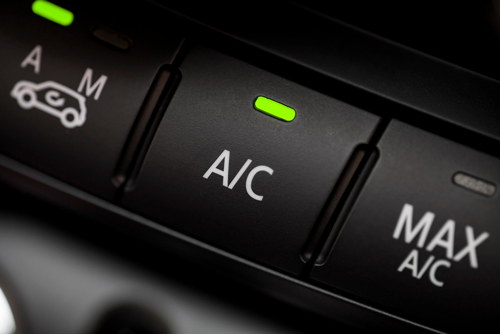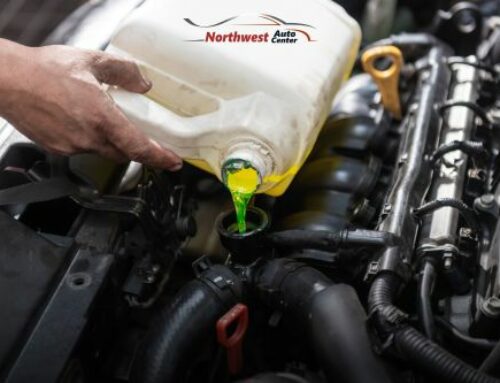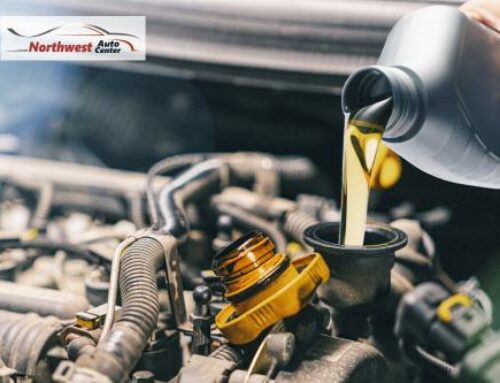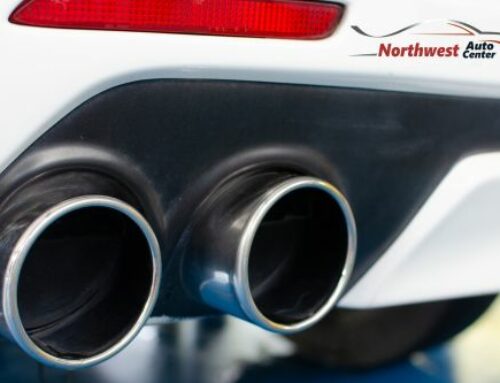Summer is coming up soon and it can be a real scorcher. Extreme heat can take a toll on your car, just like cold weather can. During the summer heat, coolant is essential to ensure your engine runs well during the change in weather. Air conditioning is also key to surviving the summer season with your car.
We all know the feeling of getting into a car during an extremely hot day and turning on the air conditioning full blast. It’s an important part of your day-to-day life during the summer. While you’re gearing up for summer, why not go the extra step to check on your car’s air conditioning system?

How to Detect an Problem with a Car’s Air Conditioning System
Detecting a problem with your car’s air conditioning is a pretty simple process. Are you noticing that the air from your air conditioning is not as cold as it used to be? Does it seem to take longer than usual to cool down? Or, is the A/C making unusual noises when you turn it on? If so, we suggest you contact your mechanic to have the system inspected.
If you answer no to these questions then keep the chills coming!
Another sign that you may need maintenance on a vehicle’s A/C is a musty, mildew smell. Mold can grow on the condensed water inside a vehicle’s A/C. Breathing in mold can pose a health risk, so you want to get this cleaned out as a fast as possible.
How a Car’s Air Conditioning Works
Your vehicle’s A/C is located under the hood of the car and is made of several integral parts:
- Condenser
- Compressor
- Evaporator
- Accumulator
- Expansion Valve
It also relies on refrigerant and several hoses to work properly.
Simply put, your vehicle’s air conditioning system uses evaporation and condensation to cool down the air and moisture already inside your car.
Common Car A/C Problems
Your Vehicle’s Losing Refrigerant
Sometimes a car’s A/C experiences damage like a broken seal or a bad hose, which can cause a refrigerant leak. Something as easy as natural wear, road salt, or debris can damage the parts of a vehicle’s air conditioning.
This problem shouldn’t be hard for your auto professional to detect and can often be fixed with a sealant.
The Condenser is Broken
A condenser can break from natural wear and tear or a run-in with road debris. The condenser is used to cool down hot refrigerant after compression. A condenser uses the air that enters through the front of your car while you’re driving.
If you have a case of a broken condenser, then you’re probably looking at buying a new condenser.
The Condenser is Blocked
A problem with a condenser does not always mean that it’s broken and needs to be replaced. Sometimes the condenser gets blocked by soot or debris from the road. When this happens, the component is unable to cool down the refrigerant, meaning that your car’s A/C will be blowing hot air into your car.
Many times, any blockage on a condenser is easy to see and can be removed quickly. But, don’t be afraid to take your car into your local garage to make sure.
Cooling Fan Problems
A condenser’s cooling fan can sometimes fail. What are the causes of a cracked fan? You guessed it. Debris from the road or natural wear and tear. Another cause can include electrical issues, like a blown fuse.
This fix is more complicated and should be left to the professionals.
Issue with Electricity
When it comes to electrical issues with your vehicle’s A/C, you should definitely take it to your trusted auto professional. These problems are rather difficult to detect and can be dangerous.
Your mechanic typically will start with a visual inspection of the wires and separate electrical parts. Sometimes a damaged wire can be mended with electrical tape. And, other times it could be an easy fix with a new fuse.
The Compressor Needs a Replacement
The compressor is an important component to your vehicle’s A/C because it keeps the system continuously moving. Without this vital part, the refrigerant will fail to cool the air circulating through the unit. Since it is the most used part in the A/C, it can break over time.
Often times, starting up a car’s A/C after a long period of non-use can cause the compressor to go bad. It’s not until you start it up again that it will break.
It’s suggested to run the air conditioning on full blast for 15-20 minutes every few weeks. Even in the winter.
Don’t wait until your vehicle’s A/C breaks down to give a look at it. If you have any questions about your car’s cooling systems, give us a call at Northwest Auto Center.






Leave A Comment
You must be logged in to post a comment.